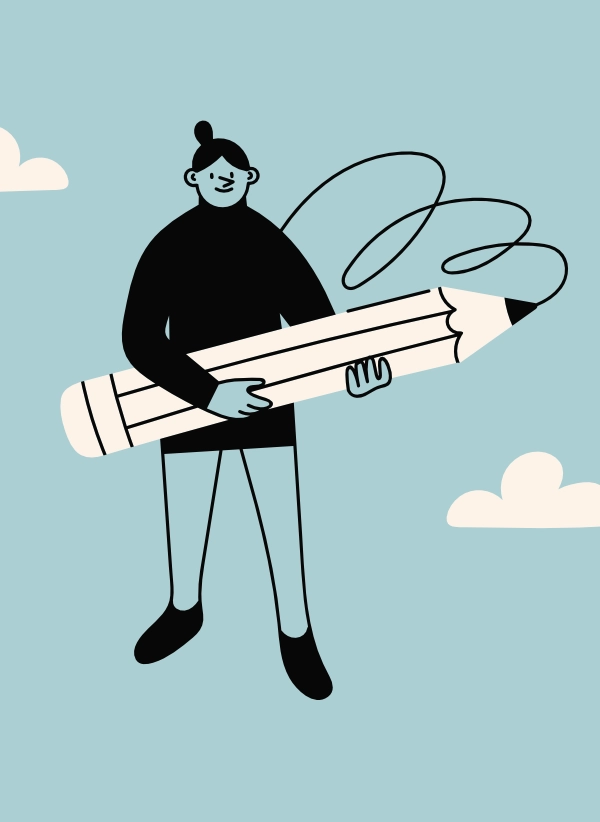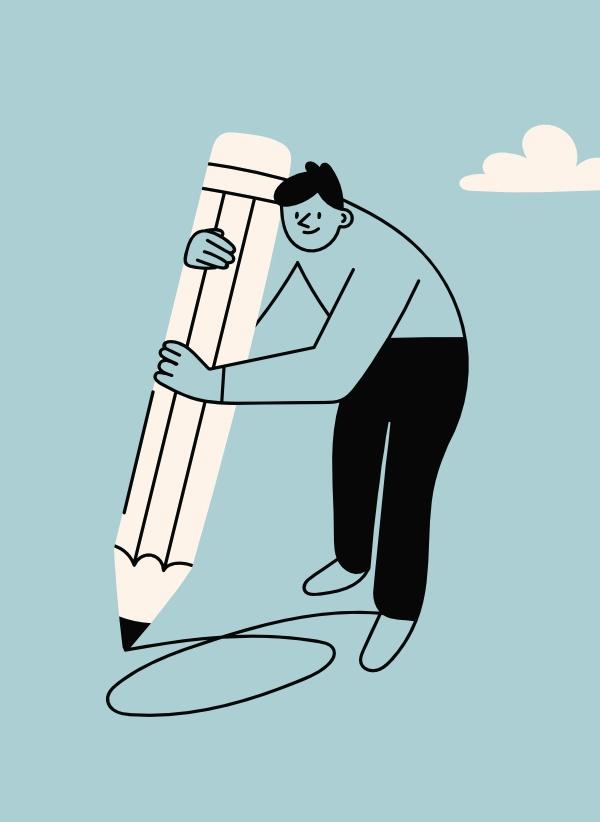Stop feeling guilty about free time
We all feel it, that undercurrent of panic. Bills to pay. Inflation rising. Deadlines multiplying. Especially as a freelancer, the pressure doesn’t stop when you clock out (because, well, there is no clock). It’s just you, your work, your income… and that ever-growing guilt when you don’t work.
But here’s the truth: life isn’t a project management board. It’s not meant to be maximised or monetised at every hour. You became a freelancer to live on your own terms. So why does time off feel like failure?
The guilt trap: when flexibility turns into pressure
Irony alert: many of us went freelance for the flexibility, right? More freedom, better work-life balance, time for the things that matter. But somewhere along the way, freedom got twisted into availability. Always working. Always producing. Always justifying.
You tell yourself you’ll rest “after this project.” But then another one pops up. You skip weekends. You work late to prove you’re serious, capable, deserving of the next opportunity. And when you do finally sit still for five minutes? Guilt creeps in like a nosy neighbour. Here’s a wake-up call I wish someone had given me earlier: time spent not earning money isn’t wasted. It’s essential.
In fact, research shows that if you feel guilty during your downtime, you enjoy it less, and it becomes less effective. So if you’re going to rest, own it. No apologies.
Productivity isn’t a badge, rest is part of the job
Since the benefits of downtime aren’t often discussed, you might think giving your brain a break is a waste of time. Without immediate results, taking a break can feel unproductive compared to the satisfaction of checking off a task. However, working non-stop can lead to mistakes because our brains simply aren’t wired to focus intensely for long stretches.
Doing something you enjoy isn’t a waste, it’s actually incredibly productive. Behind the scenes, your brain is resetting. Creativity is simmering. Solutions are quietly unfolding. When you rest, you’re not doing nothing, you’re creating the mental space that brilliant ideas need to land.
If you’re skeptical about the value of taking a break, think of it as part of your job. Take a break because you have to, not just because you want to. Trick yourself into it, and you’ll soon start reaping the benefits. Burnout makes you sloppy. Breaks make you better.
When busyness becomes an escape
I’ve got a cousin who never stops moving. Calls, meetings, updates, checklists. Her energy is so chaotic it makes my coffee nervous. But if you scratch the surface, it’s clear that she’s using her busyness to avoid facing her own personal issues. She’s not working toward something, she’s working to escape something.
Don’t become a frantic ostrich, sticking your head in the sand to avoid reality. Take a break and really assess what’s going on in your life. Are you okay? Are you working on the projects that truly matter to you? Are you neglecting your health or your relationships? Don’t drown yourself in work just to ignore these things, it’s not worth it. Remember, work should be a means to an end, not the end itself.
Hustle culture needs a reality check
You know the type: the documentary montage where some genius wakes up at 5am, runs a startup by 9, and launches a museum exhibit by sunset. It’s seductive. It sells the idea that nonstop effort = inevitable success. While hard work is certainly important, it’s not the whole story. They don’t show the mental crashes. The creative droughts. The “I need three weeks off but can’t admit it” spiral.
Our culture tends to glorify long hours at work, but that mindset can be toxic. If you log endless hours, you are not actually being successful, you are just counting hours. What really matters is working smart, finding ways to be more efficient and productive, which includes taking breaks to recharge your brain! Working smarter, not harder, is the key to sustaining creativity and achieving lasting success.


Taking a break adds value to you and your work
A study by Perlow & Porter from Boston Consulting Group found that taking time off significantly improved employees’ performance. They felt more refreshed, communicated better, and found more efficient ways to work. For creatives, this is especially important. Stepping away from your work allows you to gain new perspectives and draw inspiration from different experiences. Fresh influences can elevate your ideas, making them shine even brighter after a break.
Your brain needs the space to stretch and relax, which is why your best ideas often come when you’re not actively working. You’ve felt it before: that idea that strikes just before you fall asleep, or mid-shampoo, or on a quiet train ride with no signal. That’s your brain on rest. That’s what makes you brilliant.
Make your breaks count (but don’t overthink it)
Taking a break doesn’t mean wondering around without purpose. Free time is scarce and precious, so it’s important to make the most of it. Use that time like you’d use a good sketchbook, explorative, playful, open-ended. There are countless ways to use your time wisely and find inspiration. Make a list of things you’d like to do, add to it, subtract from it, and, most importantly, do them!
- Pick up that hobby you’ve been postponing
- Go see an exhibition
- Learn a new tool that you’re curious about but never “have time” for
- Take your health seriously (stretch, breathe, sleep!)
- Journal, walk, or sit on a bench and people-watch without your phone
As my good friend Chris Silverman puts it: “You can have all the talent in the world, but if you’re not organised, it’s like a leaking oil well: unchanneled skills are wasted.”
A sabbatical state of mind
Designer Stefan Sagmeister has it nailed. For every seven years of work, he takes a one-year sabbatical to recharge. He shuts down his studio and takes an entire year off. A whole year. And guess what? His work after those breaks is so good, he charges more for it.
That TED Talk of his (from way back in 2009, but still so relevant) made me rethink what time off even means. It’s not the absence of work, it’s an investment in future brilliance.
Conclusion
You weren’t built for constant output. You are not a spreadsheet or a robot or a progress bar. You are a thinking, feeling, wildly creative human being, and you need rest to stay that way.
So here’s your permission slip: stop. breathe. step away. Go live a little. That walk, that nap, that afternoon reading something that has nothing to do with work? It’s not a detour, it’s part of the journey. Take that break. And take it seriously.
